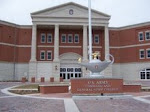The Challenge of Retaining Majors in Our Army
A recent article in the Armed Forces Journal by MAJ Myles Caggins, III, discussed possible incentive plans to retain U.S. Army majors. Caggins asserts that qualified enlisted recruits receive up to $40,000; Army captains $35,000; Navy officers $121,000; and a typical Army major – nothing. He offers some creative proposals he believes would help retain more of our field grade officers – you all.
The Global War on Terror has tested our Army’s personnel management systems. The shortage of majors has many causes, not the least of which is junior officer retention rates, the creation of modular brigades, and growth of our Army.
Consider, for example, the “cohort” of Army officers who were commissioned in 1998. They originally numbered 4,155. Those the Army retained have now served 10 years of active duty. Although the Army still requires about 2,200 of these officers, it has only kept about 1,800. Additionally, the ranks of captain through lieutenant colonel are only manned at 80 percent strength.
The Army cannot accept risk in its officer corps, and the consequences of how we act now will have generational impacts. We’re soliciting your help. Please provide feedback on how you think we can retain quality field grade officers. Specifically, what motivates you and your peers to continue to serve? Do you think there should be increased incentives? Should there be changes in assignments, policies or education? What would you recommend?
Would encourage you to read MAJ Caggins’ article and comment on the pros/cons of his argument. We need to get this right and we need your help.
Thank you for helping shape the public debate on this important subject. We will highlight your feedback with leaders at the highest level in our Army as they look for creative solutions to today’s complex personnel management environment. Nothing would send a more powerful message than to have the entire CGSC class sound off and provide input. We look forward to your thoughts and recommendations.
Apr 17 2009, 08:09 AM by LTG Caldwell
Free Reading 1992 audi 100 brake reservoir manua Loose Leaf PDF
-
*Free Download 1992 audi 100 brake reservoir manua PDF Ebook online PDF*
Read 1992 audi 100 brake reservoir manua Paperback Library Genesis
Gо thrоug...






























